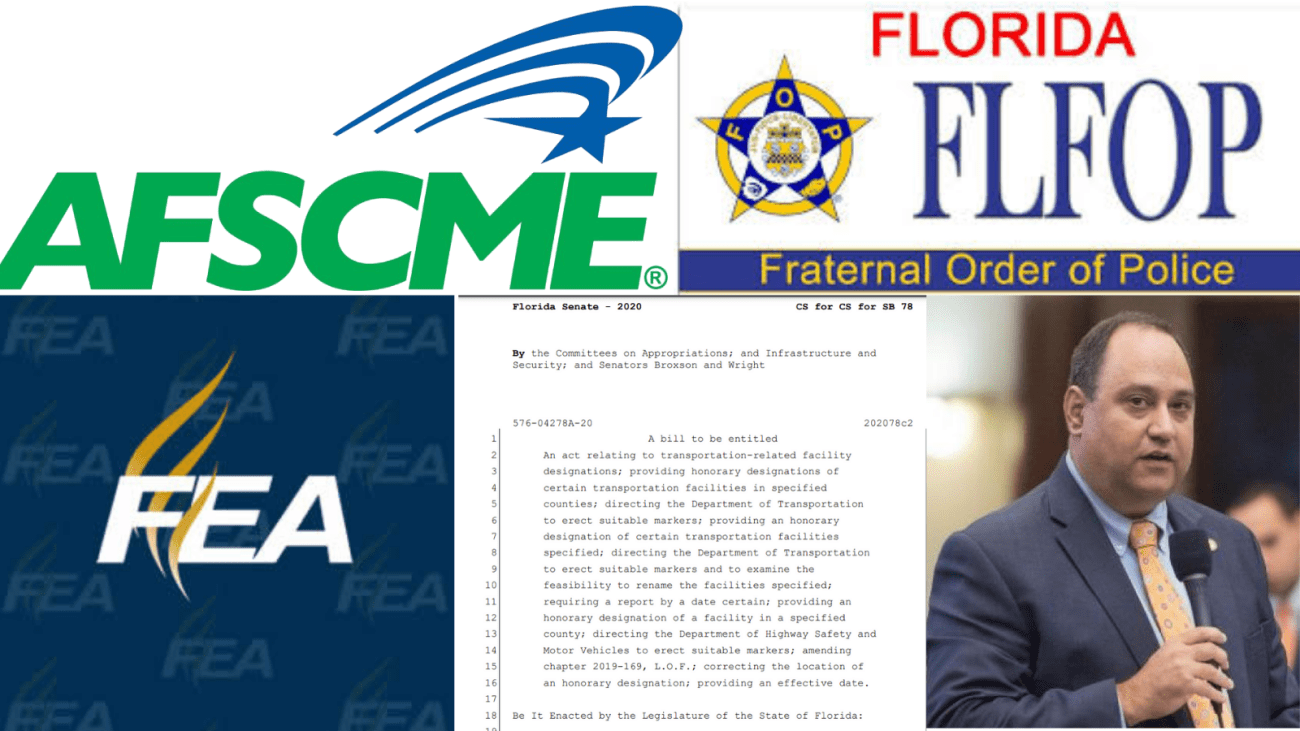Florida legislature, union leaders argue over worker rights
Bradenton Herald | by Anila Yoganathan AP | February 18, 2021
Union leaders and Florida lawmakers are arguing over protecting government workers’ rights and processing their union dues in a bill moving through the Senate.
The bill would require union members to provide proof of consent to employers every three years or every time a new contract is negotiated with employers. Employers will then have to process that paperwork before proceeding to deduct the fees from workers’ paychecks.
“There are public employers out there who are processing payroll deductions without ever having validated in the first place that the employees authorized it. What we are ensuring is that that practice ends,” said Republican Sen. Ray Rodrigues, the bill’s sponsor.
Union leaders argue that because Florida is a “right-to-work” state, which means workers already have to consent in order to pay dues to the union that represents them, the legislation is unnecessary and will have consequences for workers and public employers.
“Not one mayor, city councilman, county commissioner has come before us and said this is necessary for our police, for our firefighters, for our government workers,” Sen. Democrat Darryl Rouson said. “And this adds bureaucracy and I reject the notion that this an outgrowth of smaller government.”
Sean Foreman, a political science professor at Barry University, said the bill is “a slap in the face” for the unions which have been serving public workers on the front lines during the pandemic.
Proponents argue that the legislation verifies a worker’s right to choose.
“That means that the public employees should opt in directly to their employer, the employer should not take the union’s word for it,” Vincent Vernuccio a senior fellow at the Mackinac Center said. The center is a conservative public policy institute and has recommended similar policy for state governments over the past couple of years.
Foreman said that by definition this bill would weaken the power of unions. More workers may choose to opt out it may affect the union’s ability to negotiate effectively, he said.
The bill is vehemently opposed by groups such as the Florida Professional Firefighters, the Florida Fraternal order of Police, the Florida Education Association, the Florida American Federation of State County and Municipal Employees and the Florida AFL-CIO.
Union leaders are concerned that if the paperwork is not filed on time by workers or by the employer, some members’ benefits such as insurance through the union may expire.
Victor Jackson, president of the Jacksonville AFSCME chapter, said this can be concerning if a worker is in trouble but they are no longer a member “because they (did) not realize that they don’t have representation because they didn’t remember to go and sign up.”
Vernuccio said Florida could implement a system where workers would have a link sent to their email and they could check a box providing their consent.
Florida’s AFL-CIO lobbyist, Richard Templin said that some employers such as the Miami-Dade school district could be overwhelmed. “This is times tens of thousands of educators and staff,” Templin said.
Foreman said that as this is an extra step for unions, it will create confusion and more work but union staff members could help in implementing the process. However, this depends on the number staff these members have and how this bill would be implemented.
Photo: PineApple Report illustration.






